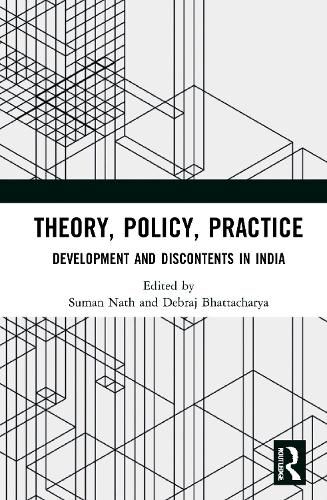Readings Newsletter
Become a Readings Member to make your shopping experience even easier.
Sign in or sign up for free!
You’re not far away from qualifying for FREE standard shipping within Australia
You’ve qualified for FREE standard shipping within Australia
The cart is loading…






This book explores the meanings and perceptions of development and the dialectics of theory, policy and practice. It looks at how theory translates into policy, and the disconnections in its design and implementation in the Indian context.
The book focuses on the influence of capitalist globalisation, democratisation, decentralisation and neoliberal economic reforms on the development discourse in India and how these have challenged the traditional role of the 'state', the meaning of citizenship, and public participation. Through an analysis of case studies from various parts of the country, it bridges the gap between policy prescriptions and practices and unpacks the institutional, political and policy-led compulsions and incompatibilities which most often remain unreported. It also discusses the intersections between policymaking and the politics of class, caste and gender, and emphasises the role bureaucracy plays in institutional governance.
The volume includes articles from professionals ranging from academics, practitioners and activists. It will be of interest to scholars and researchers of public policy, development studies, South Asian politics, and economics as well as policy makers and practitioners in government and civil society.
$9.00 standard shipping within Australia
FREE standard shipping within Australia for orders over $100.00
Express & International shipping calculated at checkout
This book explores the meanings and perceptions of development and the dialectics of theory, policy and practice. It looks at how theory translates into policy, and the disconnections in its design and implementation in the Indian context.
The book focuses on the influence of capitalist globalisation, democratisation, decentralisation and neoliberal economic reforms on the development discourse in India and how these have challenged the traditional role of the 'state', the meaning of citizenship, and public participation. Through an analysis of case studies from various parts of the country, it bridges the gap between policy prescriptions and practices and unpacks the institutional, political and policy-led compulsions and incompatibilities which most often remain unreported. It also discusses the intersections between policymaking and the politics of class, caste and gender, and emphasises the role bureaucracy plays in institutional governance.
The volume includes articles from professionals ranging from academics, practitioners and activists. It will be of interest to scholars and researchers of public policy, development studies, South Asian politics, and economics as well as policy makers and practitioners in government and civil society.